Paris Restaurants: The Rules
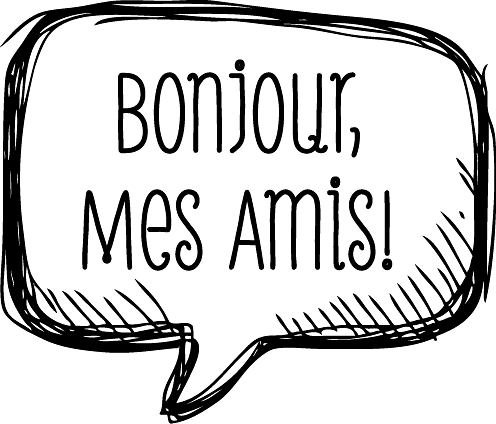
Thu 19 Jun 2014
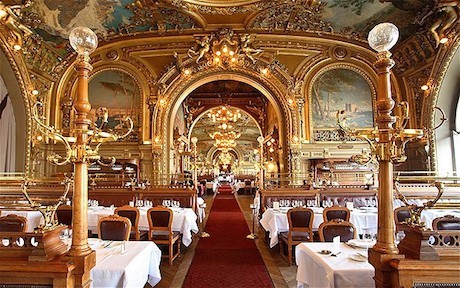
Le Train Bleu (photo by technomechno7.files.wordpress)
Food is a significant part of French culture and being prepped and ready will help you enjoy this essential element of the French art de vivre (The art of living beautifully). Below you’ll find ten simple rules of dining in Paris which will undoubtedly make your experience in Paris restaurants much more enjoyable. We want to thank Andy Herbach, a veteran Paris diner and author of Eating and Drinking in Paris for this helpful list. Why not print it out before your trip!
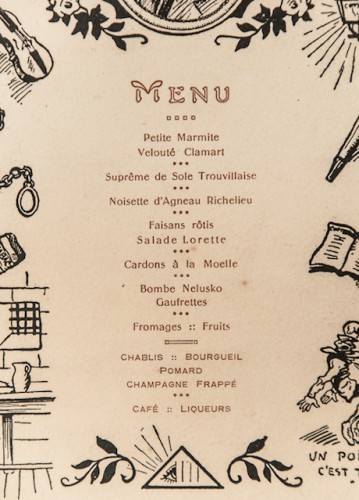
French menu for a special occasion (art by Paris Hotel Boutique)
1. Avoid eating in a restaurant that has a menu written in English. We’re against them for a number of reasons. One good reason is that at one restaurant, we were automatically given the English menu and we discovered as we walked out that it bore no relationship to the French menu which was more than twice as long.
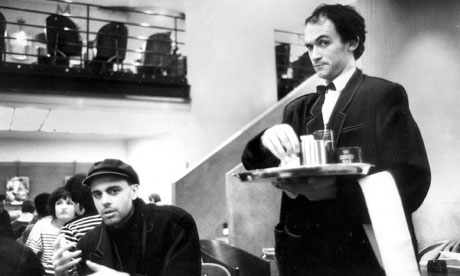
The French Waiter (photo by the Guardian)
2. Don’t be afraid. They can’t and won’t hurt you. They are not laughing at you, they don’t dislike you, they aren’t even thinking about you. Waiters in France are trained professionals whose job is to serve you. Despite what you’ve heard, they want you to have a good time. Sometimes they are just mystified by what we do.
3. Don’t ever call the waiter “garçon.” Though sometimes in bars a Parisian will use this word, travelers should never use it. (Garcon technically means boy and can be perjorative.)
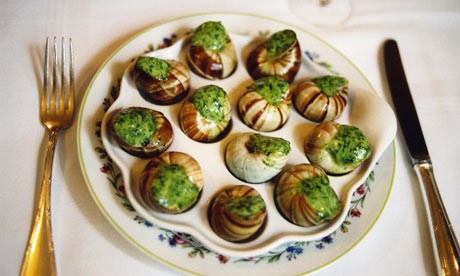
Escargot (photo by the Guardian)
4. Try to make reservations. This isn’t as difficult as it seems; the words are similar in both languages and they’ll get the gist of what you’re trying to do. We often do a walk-by in the afternoon and stop in to make the reservation. When we go back that night they are almost always happy to see us again. (Tip: the popular restaurants in Paris will need from 3 weeks to 1 month of lead time to get a reservation on a popular night so plan ahead)
5. Return to a restaurant if you like it. If you have the luxury of time and can withstand the temptation to try other restaurants, you will always be treated better if they recognize you. Few travelers return to the same restaurant.
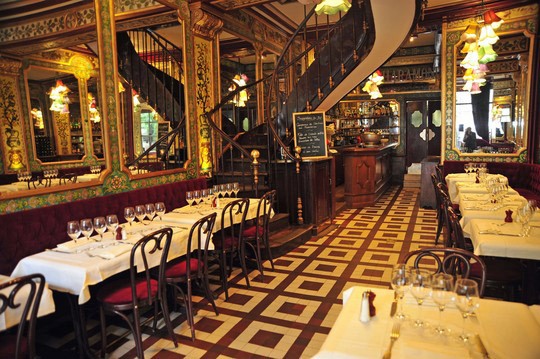
Pharmond (photo by Paris Digest)
6. Parisians dine leisurely. Don’t expect to get the same speed of service as at home. For the French, dinner is nearly a ritual. In its full-blown form, it begins with an apéritif. This is often accompanied by an amuse-gueule, a little snack or tasting served free by the chef. After this, you might order an hors-d’oeuvre. Then comes an entrée, which is a first course a pâté or a composed salad perhaps and then the main course which will most likely be meat or fish. The main course is sometimes accompanied by or followed by a salad, but it is a simple green salad. After this, just when you think you’re going to explode and have secretly unbuckled your belt, the serveur arrives with selections from the cheese platter that are followed by dessert, and, finally, coffee. But if you do not want to follow the French protocol, don’t. Even if the waiter seems to disapprove, do what you like.
7. Don’t talk loudly. You will notice that the French speak softly, Americans don’t; we just can’t help it. But believe us: Those loud voices coupled with running shoes, backpacks, “fanny packs”, large, conspicuous guide books and cameras are like wearing a neon sign announcing that you are a tripist, an American tripist.
8. Stand your ground without being aggressive. In the years we’ve been traveling, it seems that waiters have become more relaxed about the rituals of eating, and will accommodate you if you insist on what you want – within reason, of course.

Pure Joy! (photo by design mom.com)
9. Visit a street vendor at least once in Paris. Whether it’s baguettes, ice cream or crêpes, Parisian street vendors sell delicious “food on the run.” Do yourself a favor, and sample some.
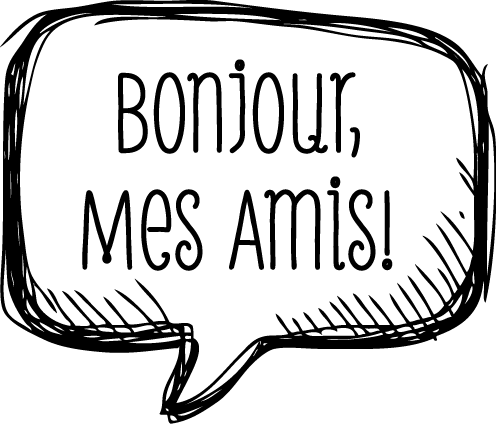
(art by Merrymoment.com)
10. Always be courteous. Remember that you are a guest in their country. There are simple things that the French do that we don’t, like excusing yourself or saying please all the time.
Finally:
S’il vous plaît (seel voo play) after nearly everything is a safe way to be very polite. Seriously. A polite Parisian ALWAYS finishes a greeting (such as bonjour – hello) or affirmation (such as oui – yes) with a title. Thus, bonjour is always bonjour, madame or monsieur and yes or no is always oui, m’sieur or madame. And just so you know, you say bonjour, which is essentially hello, all day and night.
Bonsoir – good evening – is reserved for leaving and after 7:00 p.m., and bonne nuit – good night – is only used when you are actually on your way to bed.
Andy Herbach is the author of Wining and Dining in Paris, Eating & Drinking in Paris, Eating & Drinking in Italy, Eating & Drinking in Spain and Portugal, Eating & Drinking in Germany, Best of Spain, Best of Provence, Best of Paris, and Europe’s Best Walks.
For insider deals on restaurants, bars, and wine and champagne tastings in Paris, get the GO-Card and enjoy the luxe life for less. Learn more about the Go-Card and where to use it.